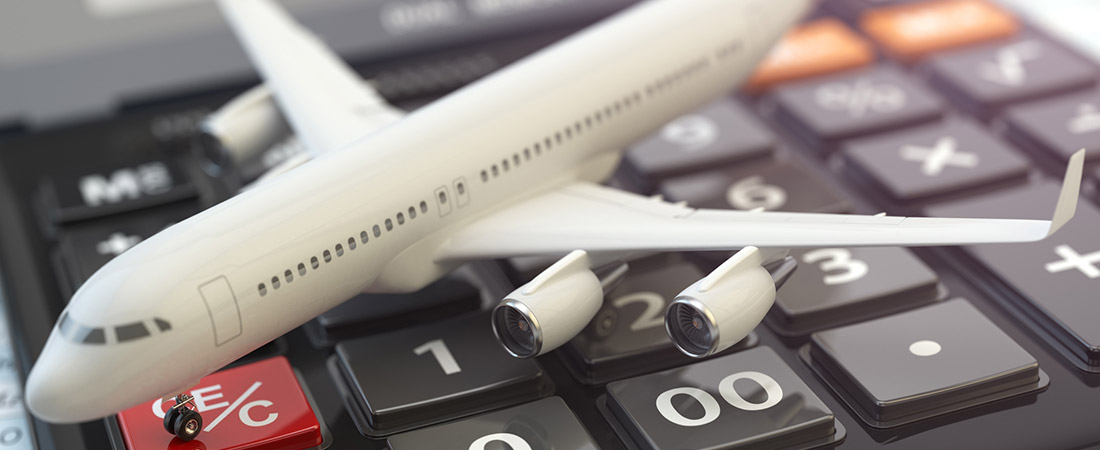Sep 20, 2017
Five Simple Tricks for Saving Money with Budget Airlines
Lower-cost airlines can let you be a high flyer and low-spender — if you’re careful.

Budget airlines can let you be a high flyer and low-spender—if you’re careful.
Customers wowed by the cheaper flights on certain airlines are often in for a rude awakening when they see the bill. While airlines like Spirit, Allegiant, Frontier, and others make their money by offering low-base fares, they can be be sneaky when it comes to getting inexperienced travelers to purchase things they don’t need.
If you want to fly the skies on the cheap, here are five simple tricks to save your budget.
Never pay to check in
One of the most common tricks of airlines like Spirit is to make you think you have to pay for the right to check in. Other airlines do this as well, suggesting on their websites that you’ll need to pony up $10 to check in with an agent if you don’t go through the process online. In reality, the airline will either provide a kiosk at the airport to handle check in or they’ll have to check you in for free with an agent. Airlines are required to give you the ticket you’ve paid for. Don’t fall for the trick of thinking you have to buy this service ahead of time.
Consolidate those bags and check the size
Another trick of budget airlines is to charge lots of money for bags at the gate. At Spirit Airlines, the cost of checking at bag at when you arrive is $35. But the fee to check the same bag at the gate is $65. (Note: Spirit used to charge $100 to check a bag at the gate.) Plan for this and have bags that fit in the airline’s size specifications.
Airlines are required to give you the ticket you’ve paid for. Don’t fall for the trick of thinking you have to buy this service ahead of time.
Book early and take advantage of the 24-hour cancellation period
Even the cheapest airlines will give you 24 hours to cancel your booking after you’ve made it. You have nothing to lose by locking in early fares and continuing to check for new ones. Take advantage of that grace period if you find something better. Timing is also critical with budget carriers. Because they are not in the financial position of their legacy competitors, budget airlines often like to lock in a certain number of advance customers. This can lead to lower advance rates if you’re willing to book a few months ahead.
Avoid bundle packages
Some budget carriers will try to entice you with bundled amenities packages. They’ll combine a checked bag, a line pass, and a seat assignment for some combined rate. These bundles are often a bad deal, and they routinely include things you just don’t need. On Spirit, for instance, it’s routine to see an expedited security pass in these bundles. That pass is notorious for saving travelers very little time because it is included for so many travelers.
Bring your own food and drink
Many travelers look forward to a can of soda and a bag of pretzels or peanuts when they fly. On the budget carriers, these amenities are not free. That can of Sprite that might have come free on your Delta flight last month may cost you on a budget flight. The better option is to bring your own drinks and snacks. This can save you a few dollars or even more if you’re flying with a group.
Key takeaways
When you fly with a budget airline, prepare to spend no money whatsoever. You should take advantage of the cheap flight fare and aggressively decline all extra options that seek to separate you from your money. When you head to the airport expecting that budget airline to try to trick you into spending more, you can begin to enjoy the process. The best budget travelers take pride in their ability to say no to add-ons that pump up the price on top of those cheap fares.
Stash Learn Weekly
Enjoy what you’re reading?
[contact-form-7 id="210" title="Subscribe" html_id="default"]Related Articles

The 2024 Financial Checklist: A Guide to a Confident New Year

9 Ways to Celebrate Financial Wellness Month

Budgeting for Young Adults: 19 Money Saving Tips for 2024

The Best Personal Finance Books on Money Skills, Investing, and Creating Your Best Life for 2024

What Is a Financial Plan? A Beginner’s Guide to Financial Planning

How to Save Money: 45 Best Ways to Grow Your Savings





